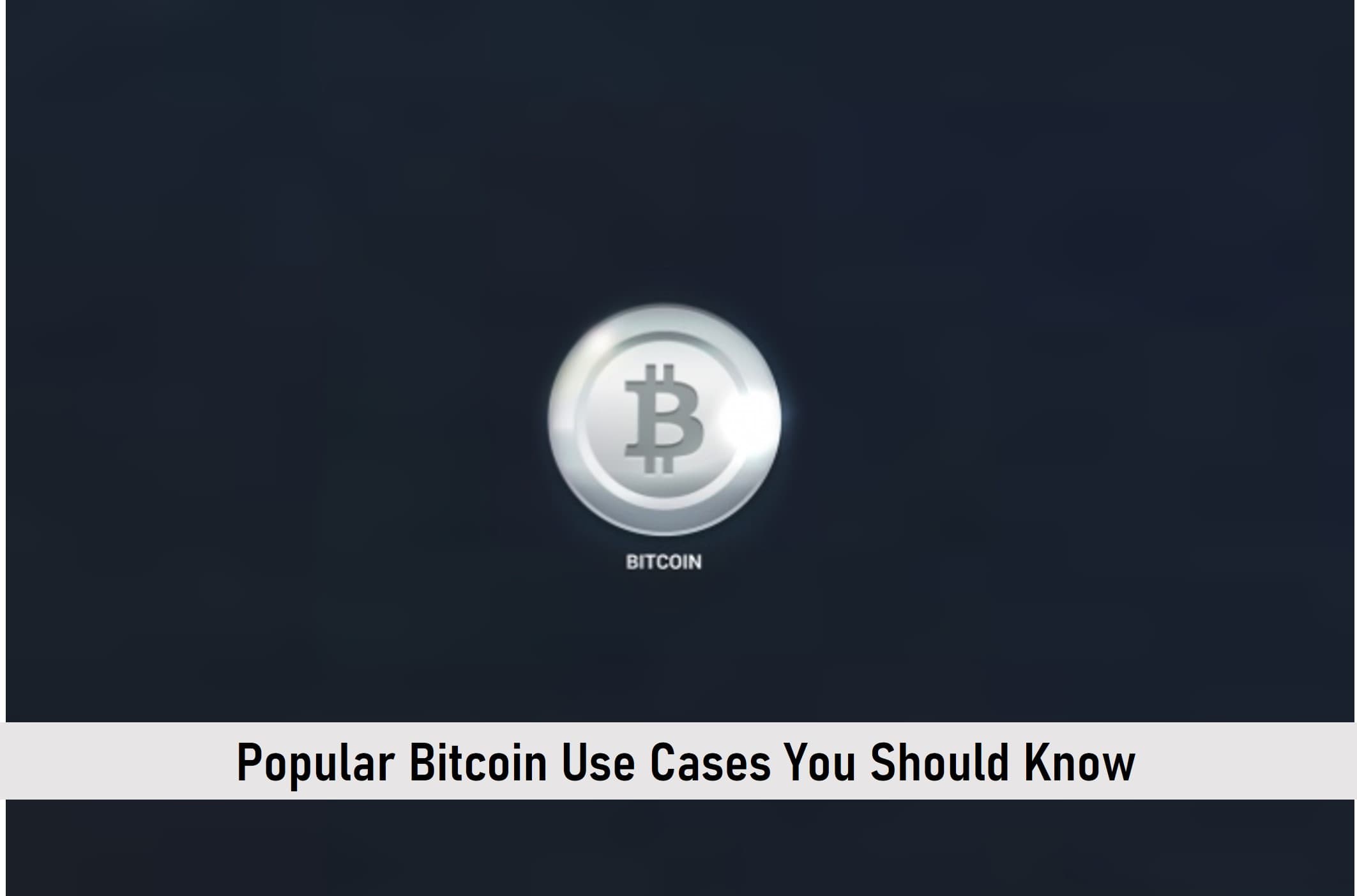
Bitcoin is an emerging technology that’s taking the world by storm. It has the potential to completely revolutionize how we store and exchange value, but it can be difficult to understand exactly what Bitcoin does or why everyone is so excited about it.
This article will give you a good overview of Bitcoin, its benefits, and some of the more popular use cases for this innovative new technology.
What is Bitcoin?

Bitcoin is a new kind of digital asset that has recently gained a lot of media attention. It’s most commonly called a virtual currency because it functions as a medium of value storage and exchange much like any other currency you might find in the world today.
But what differentiates Bitcoin from traditional currencies is its revolutionary technology. Unlike traditional currencies, which rely on the backing of a single nation-state or government, Bitcoin is completely decentralized. Nobody owns it, nobody controls it, and everybody uses it together.
What makes Bitcoin so special is that all transactions are recorded in a public ledger called a “blockchain”. A blockchain is essentially a shared document that everyone using Bitcoin has access to.
All of the transactions that have ever taken place with Bitcoin are included in the blockchain, and whenever a new transaction takes place it’s quickly confirmed by a distributed group of “miners” and included in the local copy of the blockchain on every computer running Bitcoin.
What this means is that there is no centralized mediator or authority keeping track of all the transactions ever made. It’s completely decentralized and transparent at the same time, which is a fundamental technological breakthrough.
The blockchain makes it possible for anyone using Bitcoin to send or receive money from another person anywhere in the world with no intermediary such as a bank or credit card company charging fees and delays. This also means that governments can’t block or seize transactions.
And since Bitcoin is purely digital, it has the potential to be instantly exchanged with anyone in the world without needing to convert it into another currency.
SEE ALSO: How Did Ethereum Gain Its Popularity?
Bitcoin vs. Traditional Currencies
One of the first things you’ll notice if you try to use Bitcoin is that it’s really different from anything else out there. It takes some time getting used to, but once you understand how it works it seems completely natural and obvious.
Many people are confused about how Bitcoin relates to traditional currencies like the US dollar or Euro, so let’s outline the similarity and differences between Bitcoin and traditional currencies.
Similarities
• They’re both forms of money that people use to buy goods and services
• Most people measure how much things are worth in terms of another currency, usually their local fiat currency (i.e. you’ll see prices listed in terms of US dollars, Euros, etc., even if you’re in Japan or Zimbabwe)
• When viewed at the right zoom level, Bitcoin is made up of individual units like GoldMint (GOLD), USD Coin (USDC), and EURS (EURS).
Differences
• Bitcoin has no centralized issuer; it’s controlled by everyone who uses it, and the software itself lives on a decentralized network of computers
• Traditional currencies are backed by governments and governed by unelected representatives who decide how much money to print, which affects inflation rates. Bitcoin can’t be inflated arbitrarily and has a predetermined rate at which new Bitcoins will be created
• Governments can seize or freeze your traditional account if you break the rules, but nobody can do that with your Bitcoin wallet except if you give them your private keys
• Traditional currencies are represented by strings of numbers and letters (like $5678.89), but everything in a Bitcoin wallet is displayed as a unique cryptographic object called a hash and every user’s blockchain contains the complete history of how each of these objects was created
• Traditional currencies are debt instruments that have to be repaid, but Bitcoin is intended to be used as money just like your local fiat currency rather than an IOU for something else
Bitcoin Use Cases
Bitcoin might seem out of place in the real world, but you can actually do almost anything with it that you can with traditional currencies. You can buy things online or in-person using your bitcoins, or sell them for cash if you want to get rid of them. This includes both tangible goods and intangible services like sending an email message or getting a tattoo.
You might have heard about people who made millions investing in Bitcoin early on. That’s probably the most common use of bitcoins among ordinary people. However, there are numerous other possibilities for using Bitcoin that aren’t as well-publicized.
• You can use Bitcoin to book hotels, flights, and cruises—even though you won’t see prices listed in bitcoins on Expedia or CheapAir.
• If you’re traveling abroad, you might want to pick up some foreign currency before your trip at sites like XE which lets you pay for gift cards with Bitcoin.
• You can book a whole vacation package from CheapAir, which gives you all your transport and accommodations in one place.
• You can book tours and treks using the GetYourGuide service with Bitcoin to save some money on fees.
• Betting with bitcoin is another popular use case. Although bookmakers don’t list their prices in bitcoins, you can still place bets with them using several different available methods. There are numerous bookmakers accepting bitcoin you can find online now. Most of them are reliable and trusted as they were strictly regulated by the officials and organizations in their respective fields.
Bitcoin (BTC) Historical Price Chart
Bitcoin is trading in it normal range today. It’s price could surge or decline as market dictates.
Final Thoughts
Bitcoin is a form of money that you can use to buy goods and services, invest in, book travel, or pay for things online. It has many advantages over traditional currencies which are explained in this article. What are your thoughts on Bitcoin? Let us know!
Read More





